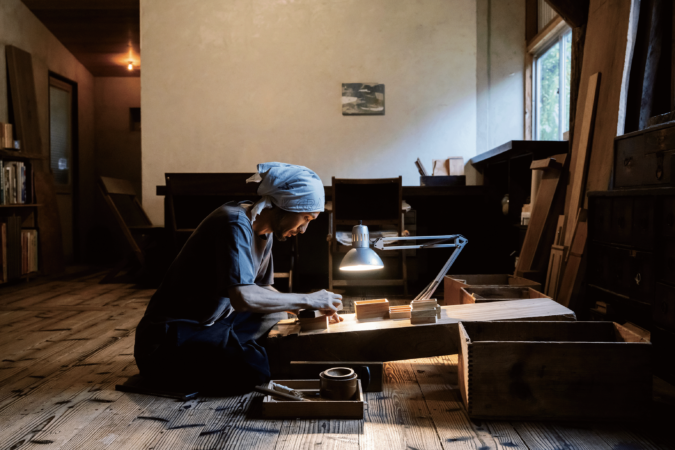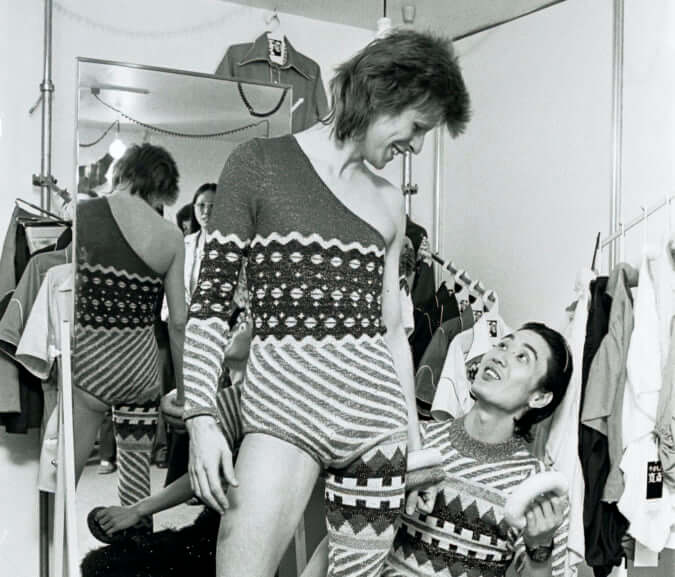DokiDoki, a Bar Where Sushi Rolls Are Made in a Flash
In Paris' first arrondissement, the chef at this sushi bar makes raw fish rolls to order in the ‘omakase’ style.
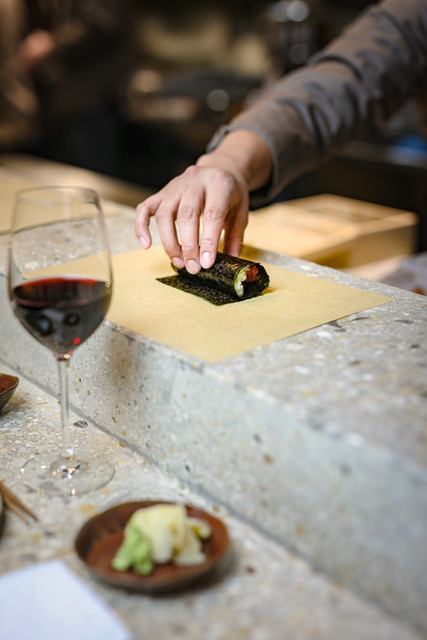
© Marion Briffod
After Le Piaf and Bambini, restaurateur Romain Taieb came together with entrepreneur Thomas Moreau, who had just returned from New York, to create a sushi bar with hand rolls as the star product. Thus, in early 2022, DokiDoki opened its doors in Paris’ first arrondissement within the former Louvre post office.
In contrast to ‘boom boom’ which indicates a heart pounding, doki doki represents the delicate sound of a heart beating and evokes the excitement of the moment. To illustrate this emotion, architect Rodolphe Albert created a space with an organic interior. A wall covered in tinted mirrors, cloud-shaped pendant lights by Céline Wright, a concrete bar that seats 25 people… In addition to this elegant, refined décor, the ceramic tableware is custom made.
The art of omakase
The new establishment, DokiDoki, applies the Japanese concept of omakase which means ‘I leave it to you’. It offers a unique experience because the sushi rolls are made in front of the diners by Colombian-Japanese chef Andres Ramirez, served immediately and eaten with the hands.
On the small menu made using quality products, there are various options to choose from. For 3 to 6 rolls, diners have to choose a tartarised fish (salmon, toro, yellowtail, crab, lobster, scallops), and round-grain rice seasoned with vinegar is then added to this. The whole thing is then wrapped in a sheet of nori seaweed from the Ariake Sea. Accompanied by beer, sake, gin or whisky, these delicious hand rolls wake up the taste buds. The culinary experience continues until dessert with mochi (black sesame, yuzu, coconut, praline) made by pastry chef Agathe Bernard.
Before leaving, diners can pick up a kit to make their own rolls at home.
More information can be found on DokiDoki’s official website.
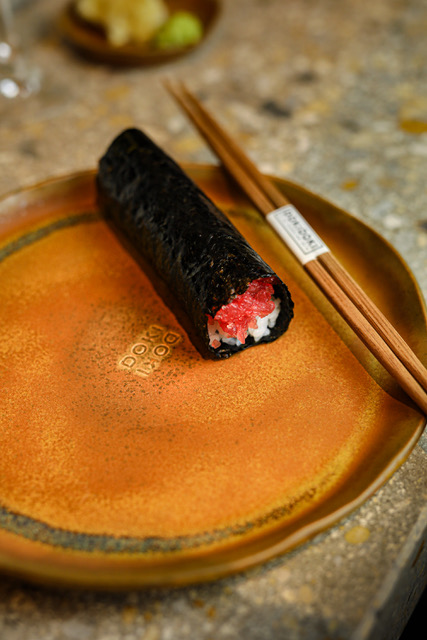
© Marion Briffod
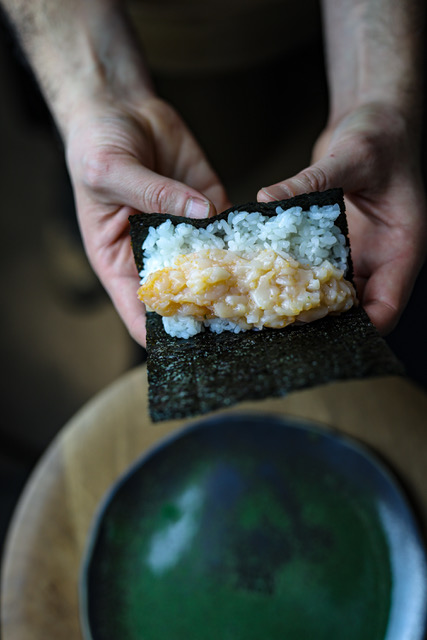
© Marion Briffod
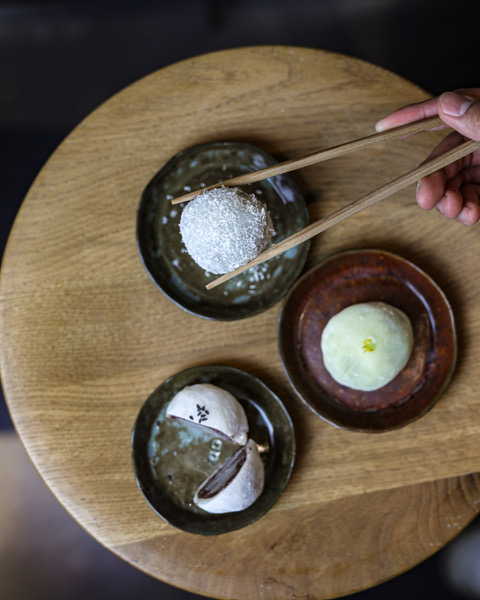
© Marion Briffod
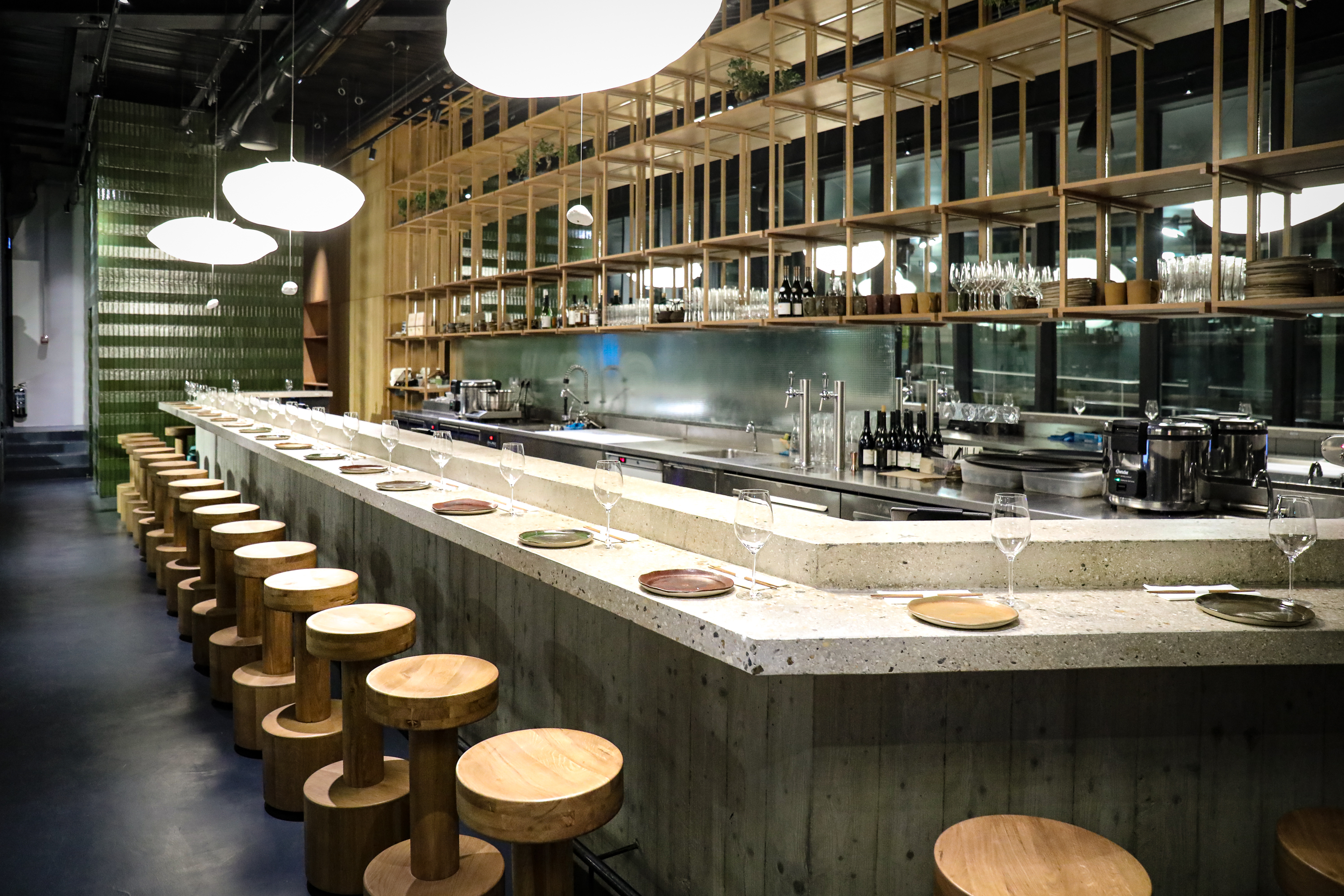
© Marion Briffod
TRENDING
-
Hiroshi Nagai's Sun-Drenched Pop Paintings, an Ode to California
Through his colourful pieces, the painter transports viewers to the west coast of America as it was in the 1950s.

-
A Craft Practice Rooted in Okinawa’s Nature and Everyday Landscapes
Ai and Hiroyuki Tokeshi work with Okinawan wood, an exacting material, drawing on a local tradition of woodworking and lacquerware.

-
The Tattoos that Marked the Criminals of the Edo Period
Traditional tattoos were strong signifiers; murderers had head tattoos, while theft might result in an arm tattoo.

-
David Bowie Dressed by Kansai Yamamoto
The English singer was strongly influenced by 'kabuki' theatre and charged the Japanese designer with creating his costumes in the 1970s.

-
‘Seeing People My Age or Younger Succeed Makes Me Uneasy’
In ‘A Non-Conformist’s Guide to Surviving Society’, author Satoshi Ogawa shares his strategies for navigating everyday life.


